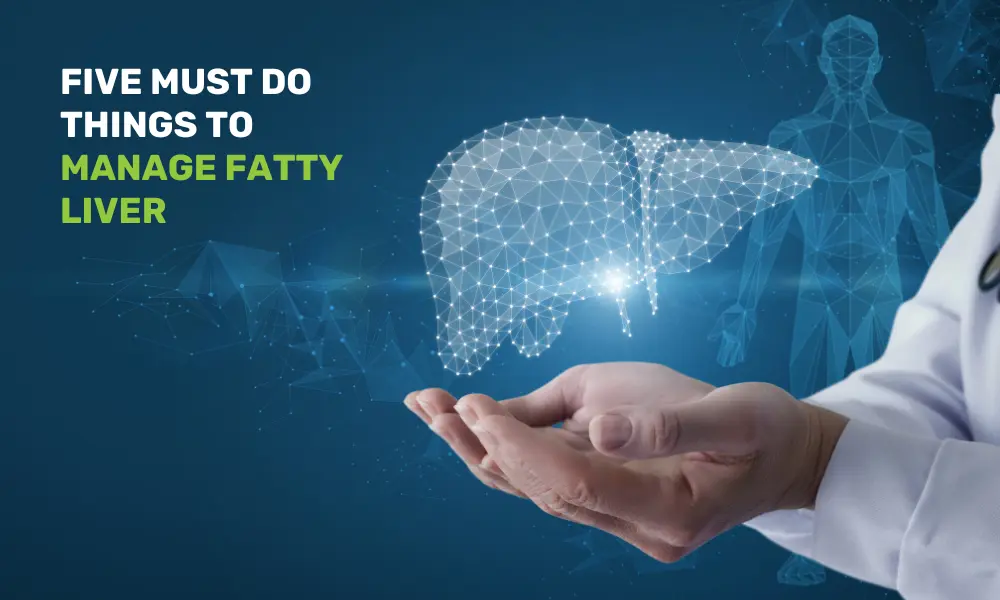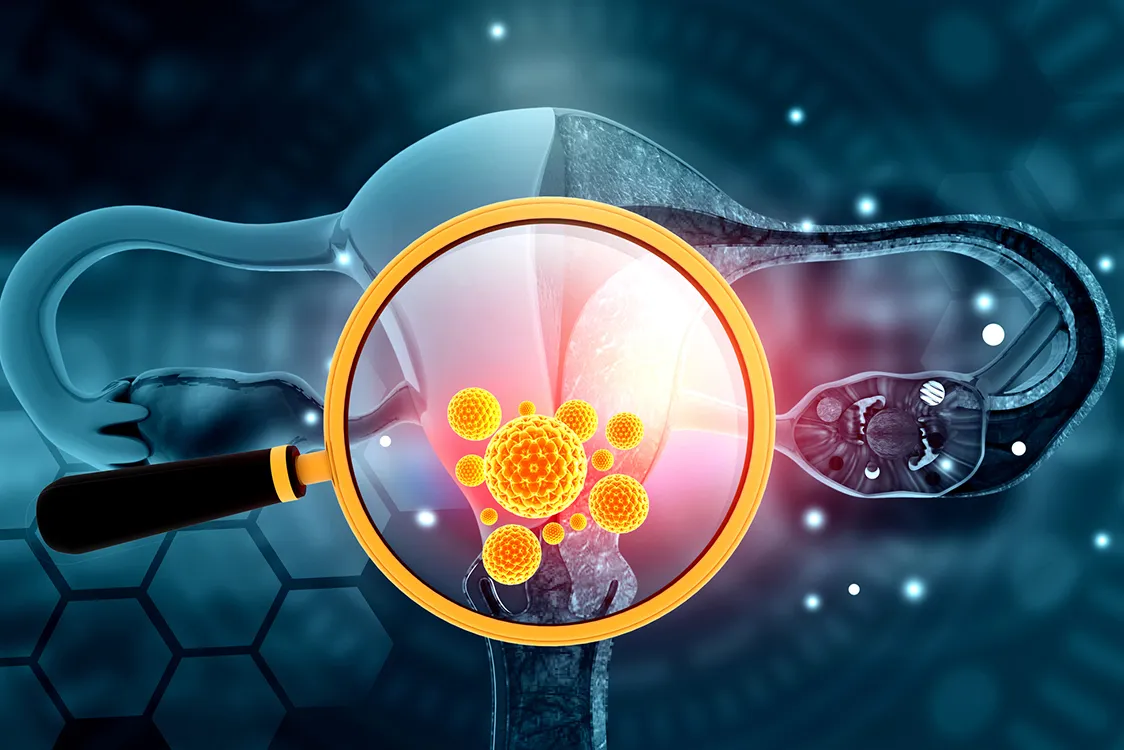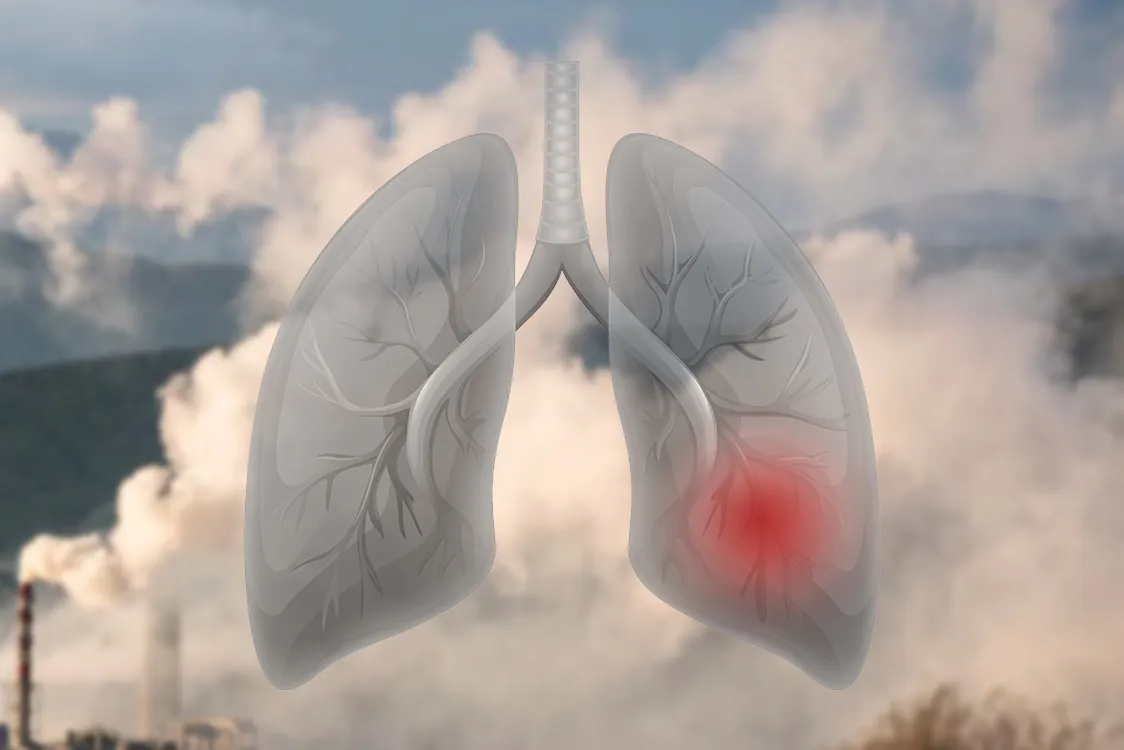Our liver is one of the most essential organs, and any damage can harm our overall health.
What is Fatty Liver?
Fatty liver is a health condition in which fat deposits in the liver. Over time, this deposition impacts liver function and causes liver damage. There are broadly two types of fatty liver disease: alcoholic fatty liver disease and non-alcoholic fatty liver disease.
Alcoholic fatty liver disease is a condition in which fat deposition happens due to excessive alcoholic consumption. On the other hand, in non-alcoholic fatty liver disease (NAFLD), fat deposition occurs due to consuming foods that are high in trans fats and saturated fats. If one has fatty liver disease, one must take the necessary steps to help prevent the disease from reaching advanced stages, where it can turn into liver cirrhosis or liver cancer, both of which can be fatal.
Causes of fatty liver disease
- Excess calorie consumption
- Improper dietary habits
- Accumulation of Fats in the liver
- Excessive Alcohol consumption
- Medical conditions like obesity, diabetes or high triglycerides may rigger Fatty liver.
Complications of Fatty Liver Disease
Few complications of Fatty liver may include:
- Fluid buildup in the belly
- Swollen veins in the esophagus that can burst and bleed
- Confusion and drowsiness
- Overactive spleen
- Liver cancer
- Liver failure
Non-alcoholic fatty liver disease can be managed and is curable. Here are five things that can help an individual to
- Eat plenty of protein: Protein is important for people with fatty liver disease. One must eat more protein for breakfast. Eating higher levels of protein for breakfast or the first meal of the day may result in people consuming less food for the rest of the day. People who have a low-protein breakfast tend to eat more energy-dense processed foods and foods that are high in sugars. So if one experiences a high craving for sugary or processed foods, one must try to increase their protein intake, especially for breakfast, and aim to get at least 25 to 35 grams of protein per meal.
- Avoid sugary drinks: Sugary drinks are generally high in fructose, which is a major cause of fatty liver disease. Fruit juices available in markets have a high amount of processed sugar, which may only harm our bodies. One must ensure to check the ingredients and levels of sugar that a drink has before consuming it. This may help an individual cut on unnecessary sugar intake. People with fatty livers must stay away from all drinks that have sugar in them. Similarly, people should also avoid eating fruits like dates, raisins, or prunes due to their high glucose content. Foods with high sugar content may impact the liver’s normal functioning.
- Reduce saturated fat intake: People with fatty liver disease need to reduce their intake of saturated fat foods such as red meat, processed meats, butter, and ice cream. So, it is important to not overeat saturated fats. However, eating saturated fats in moderation is ok. They should eat more of the good fats, that is, poly or monounsaturated fats that come from fish, nuts, and avocados. It is recommended to use olive oil or avocado oil.
- Exercising for 150 minutes a week: Apart from all of the above-mentioned ways, it is suggested that one should get at least 150 minutes of moderate, intensive activity per week. One must include resistance training or muscle-building exercises at least two days a week, as this helps restore the liver to good health.
- Abstaining from alcohol: Alcohol is harmful for people with fatty liver disease, and therefore, one should avoid drinking alcohol completely. Abstaining from alcohol can be highly beneficial in reversing fatty liver disease.
Liver being one of our vital organs, we must ensure healthy eating habits along with a healthy lifestyle to reduce chances of developing fatty liver. Additionally, to ensure liver health, one must undertake liver function test if required post doctor’s consultation. To book a Liver function test, CLICK HERE.





